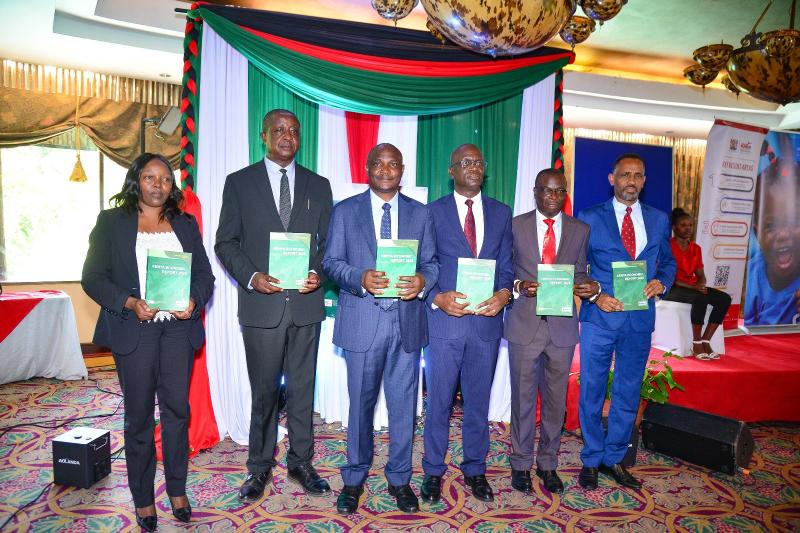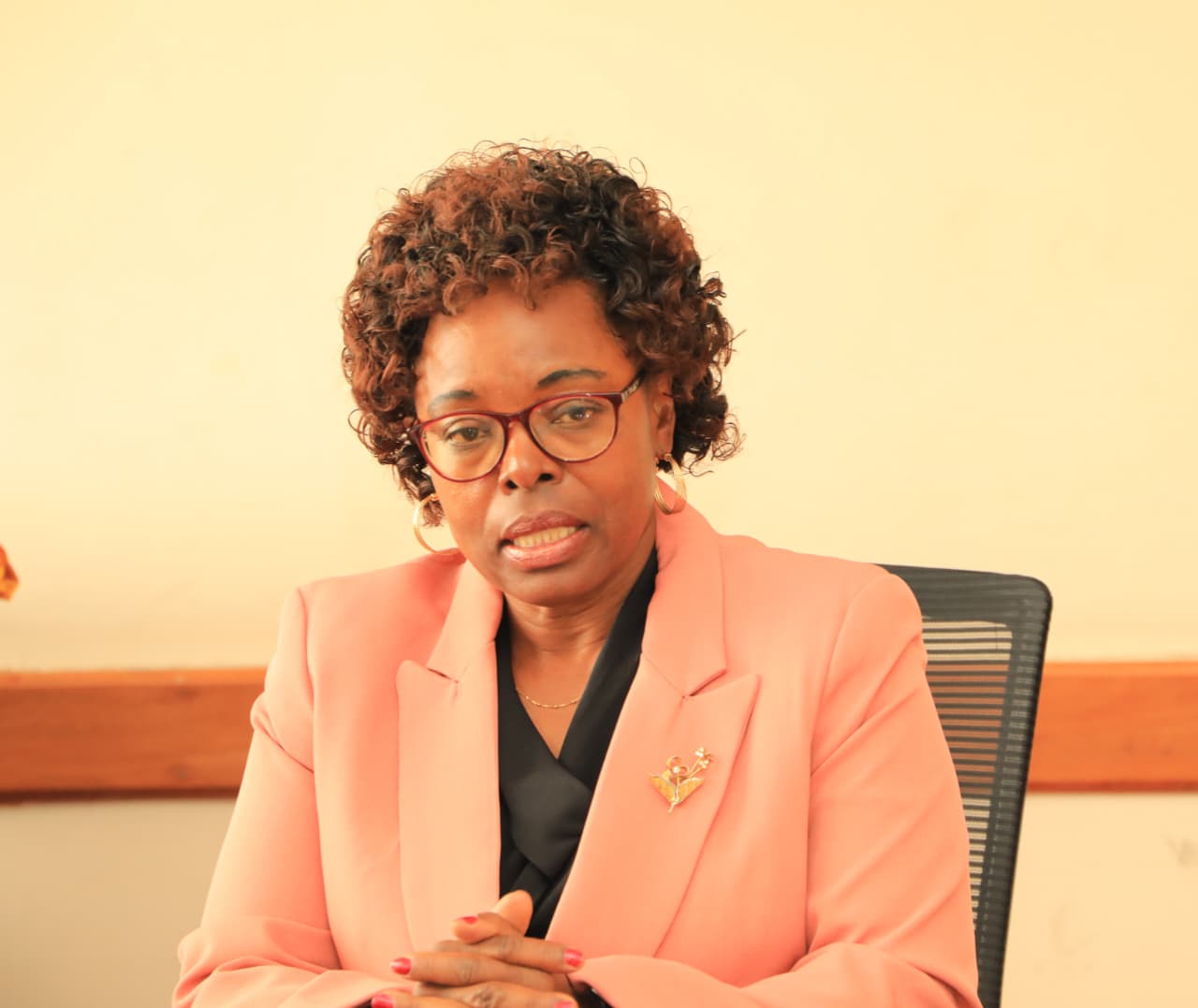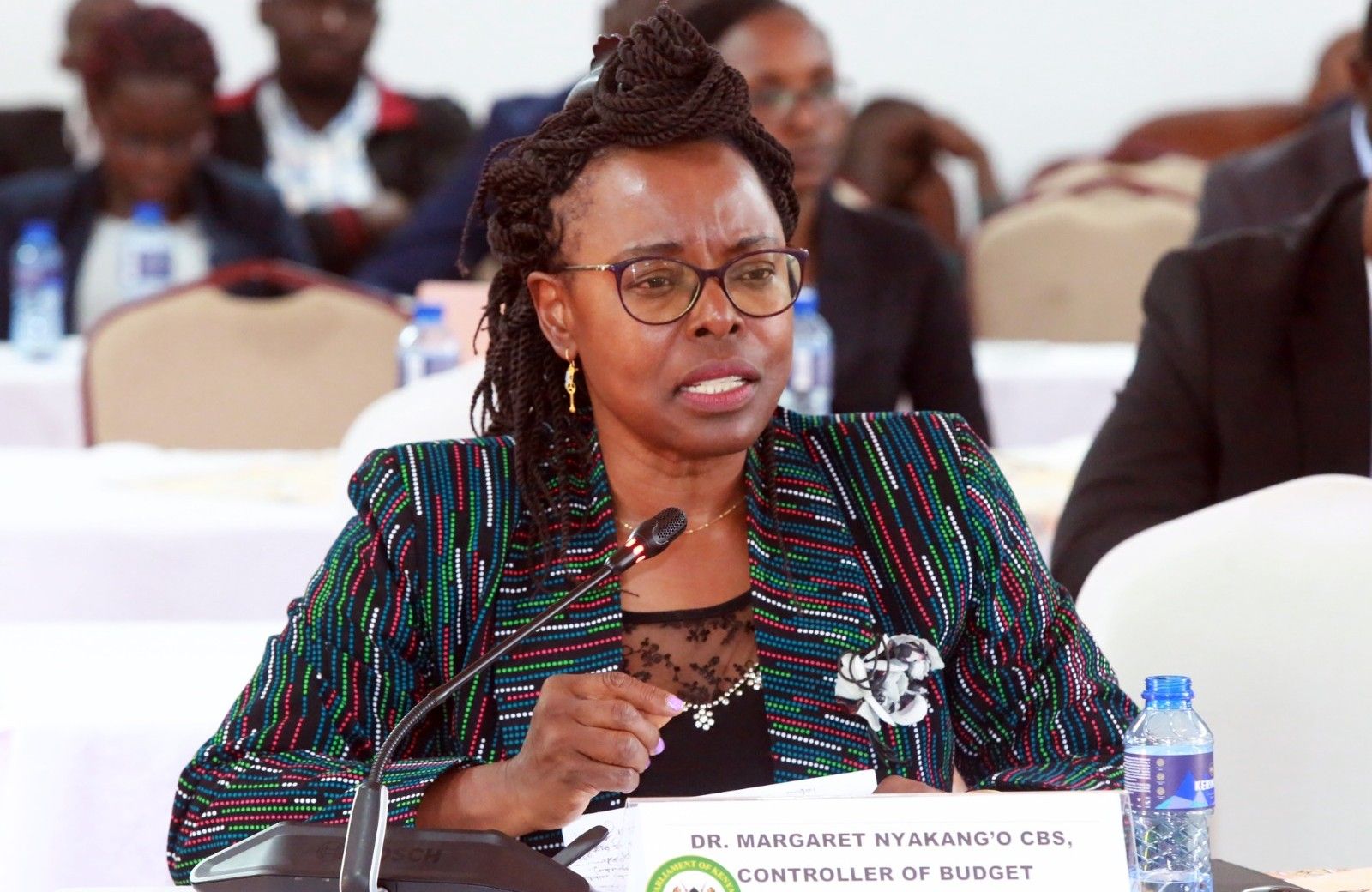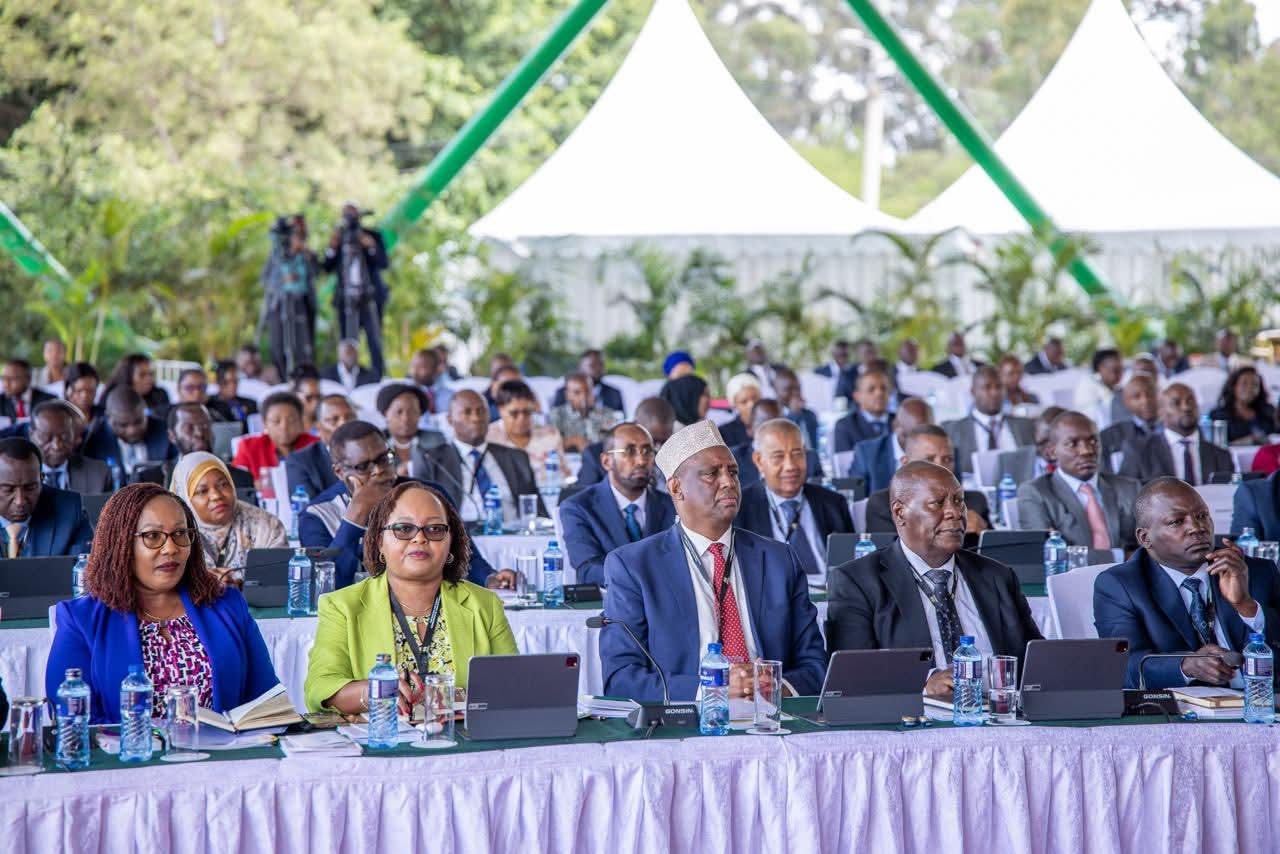Kenya ranked position 121 out of 180 countries in latest corruption index report
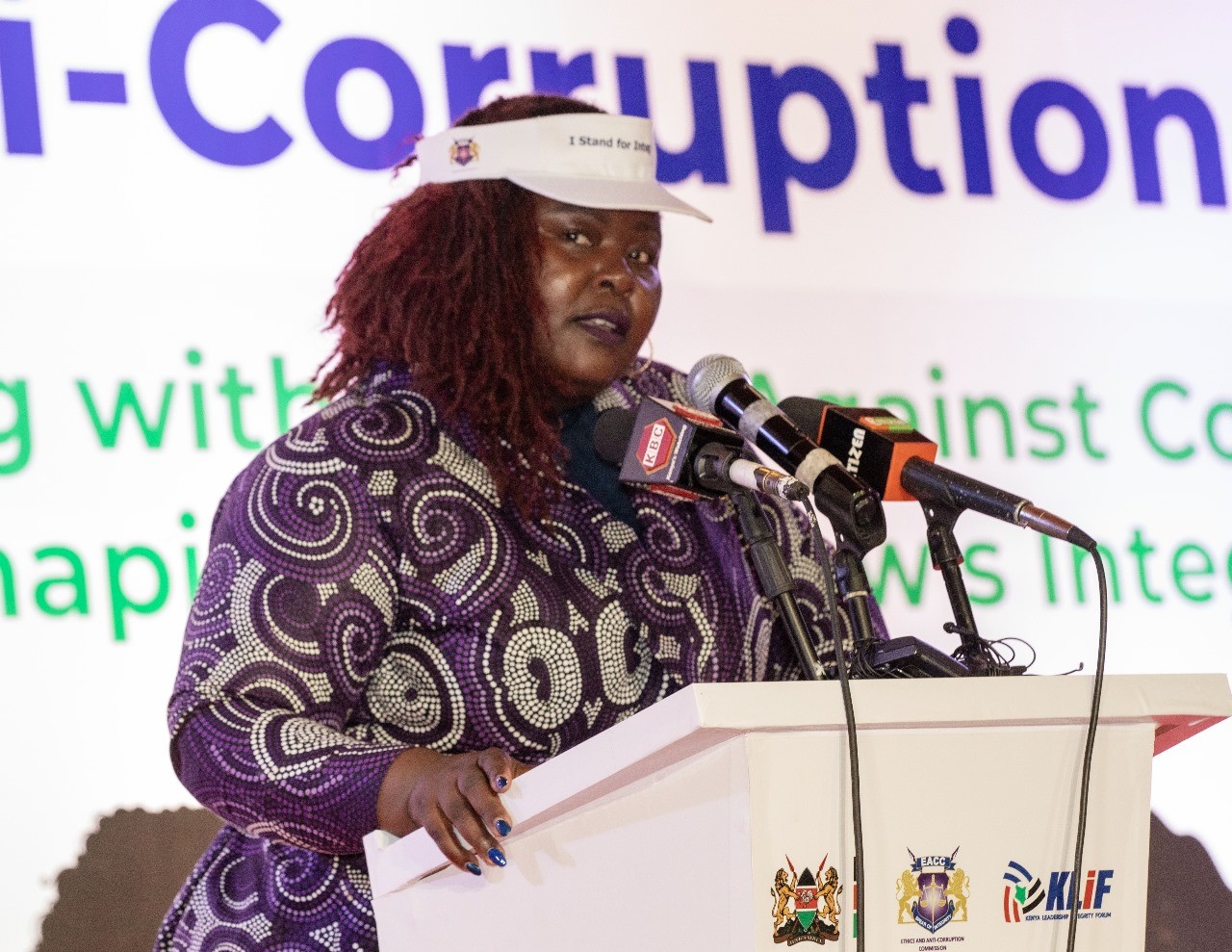
Kenya is ranked in position 121 out of the 180 countries and territories assessed.
President William Ruto's administration was on Tuesday ranked poorly in another new report on corruption conducted across 180 countries.
In the report by Transparency International conducted in 2024 to examine the corruption perceptions index, Kenya obtained a score of 32 out of 100, from a score of 31 points in 2023, and is ranked in position 121 out of the 180 countries and territories assessed.
More To Read
- Public officers face Sh4 million fine or 10-year jail term for missing asset declarations
- Over 280 county corruption cases under EACC investigation
- EACC urges counties to strengthen anti-corruption measures and safeguards
- EACC recovers Sh505 million in plea bargain with ex-Migori Governor Obado's associates, puts assets up for auction
- EACC submits 89 graft cases involving top officials to ODPP for prosecution
- EACC: Nine governors under investigation for using staff to funnel stolen county funds
Kenya's score (32 points) fell below the Sub-Saharan average score of 33 and the global average score of 43 (a score below 50 indicates serious levels of public sector corruption). Rwanda tops the East African region with 57 points compared to 53 points in 2023, Tanzania scores 41 from 40 in 2023, Uganda maintains a score of 26, and Burundi has 17 from 20 points in 2023.
According to the organisation led by Sheila Masinde in its Kenya Chapter, the report dubbed "The 2024 Corruption Perceptions Index (CPI)," reveals that global corruption levels remain alarmingly high, with efforts to combat it faltering, amidst declining democracy, rampant human rights violations, and adverse climate crisis across the globe.
A statement by the organisation indicates that the 2024 CPI indicates that corruption continues to grow in scale and complexity; the ripple effect is huge – causing devastating consequences for global climate action, as corruption diverts critical resources, weakens environmental governance, and hinders urgent efforts to combat climate change.
"Corruption is an evolving global threat that does far more than undermine development – it is a key cause of declining democracy, instability and human rights violations," said François Valérian, Chair of the Transparency International Board.
Long-term priority
François went ahead to say that the international community and every nation must make tackling corruption a top and long-term priority. "This is crucial to pushing back against authoritarianism and securing a peaceful, free and sustainable world. The dangerous trends revealed in this year's Corruption Perception Index highlight the need to follow through with concrete action now to address global corruption."
In the report, countries and territories are ranked based on their perceived levels of public sector corruption. The report is a composite index, a combination of surveys and assessments of corruption, which is collected by a variety of reputable institutions.
The 2024 edition of the CPI ranked 180 countries and territories by their perceived levels of public sector corruption, drawing on 13 different data sources from 12 different institutions that capture perceptions within the past two years. Denmark, Finland, and Singapore topped the index, with 90, 88, and 84 points, respectively, while South Sudan, Somalia, and Venezuela, fell at the bottom with scores of 8, 9 and 10, respectively. More than two-thirds of countries scored below 50 out of 100.
Countries that scored above the global average from the Sub-Saharan African region included Seychelles (72 points), Cabo Verde (62 points), Botswana (57 points), Rwanda (57 points), Mauritius (51 points), Namibia (49 points), and São Tomé and Príncipe (45 points).
Kenya's score in the Corruption Perception Index remains largely stagnant, reflecting the persistent challenge of corruption in the country. While Kenya scored 32 points in CPI 2024, this represents no significant shift from previous years—only a marginal change from 31 points in 2023. The 5-year trend analysis shows that Kenya had a change of only one score between 2020 (31 points) and 2024 (32 points).
Masinde noted that a sustained commitment to strengthening anti-corruption institutions, enforcing laws without political interference, and ensuring accountability at all levels of government is critical.
"Kenyans must remain relentless in demanding accountability because corruption thrives where scrutiny is weak. By consistently questioning those in power, exposing wrongdoing, and refusing to stay silent, we can push back against impunity, protect human rights, and build a transparent, just society,'' said Masinde.
Top Stories Today
